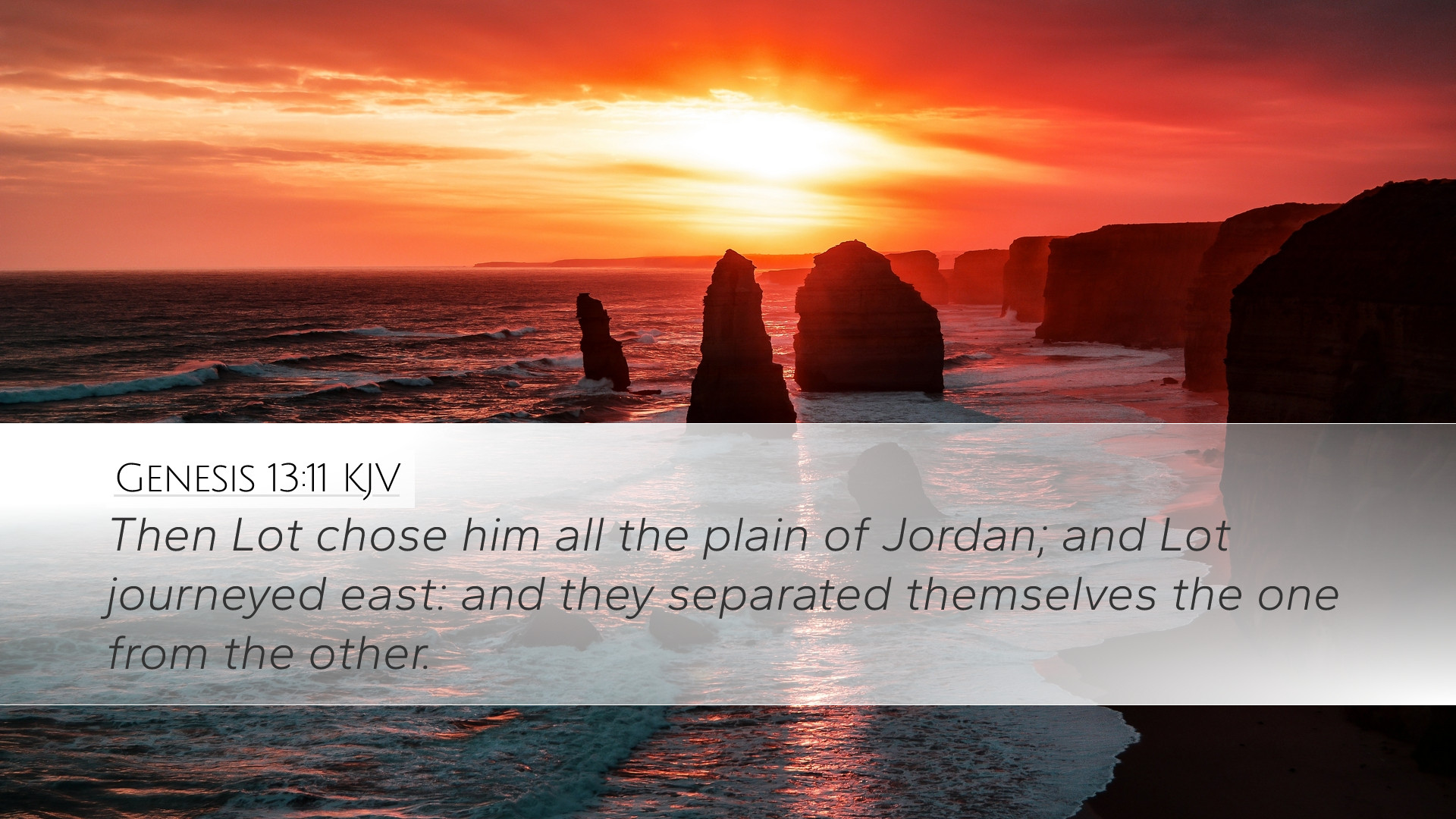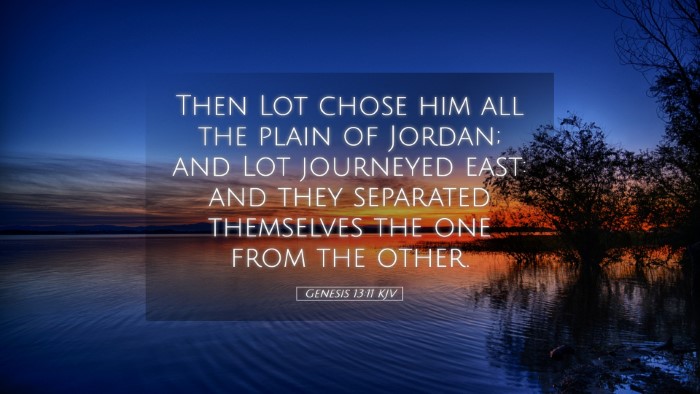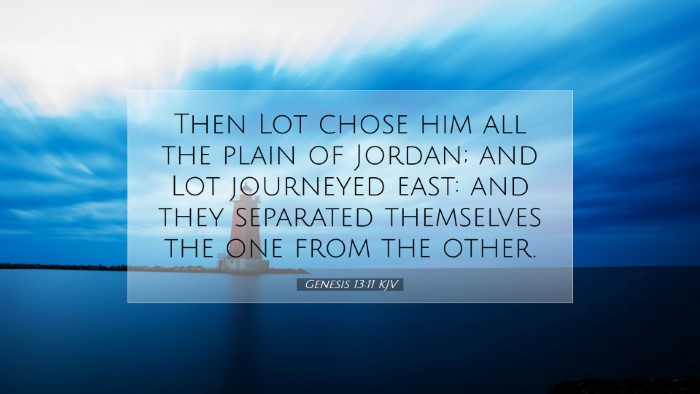Commentary on Genesis 13:11
Verse Text: "Then Lot chose him all the plain of Jordan; and Lot journeyed east: and they separated themselves the one from the other."
Introduction
This moment in the narrative of Genesis marks a significant turning point in the lives of Abram (Abraham) and Lot, revealing themes of choice, separation, and divine providence. The decision of Lot to select the plain of Jordan is laden with implications that resonate through the ensuing chapters of biblical history.
Exegesis and Context
The backdrop to this separation is established earlier in Genesis 13, where tension emerges between the herdsmen of Abram and Lot due to the increasing number of livestock. The land could not support both families, prompting Abram’s proposal to Lot to choose a portion of land for himself, allowing for amicable division.
This choice marks a pivotal moment, indicating not merely a geographical decision, but also moral and spiritual dimensions, which have been extensively analyzed by theologians such as Matthew Henry, Albert Barnes, and Adam Clarke.
Matthew Henry’s Insights
Matthew Henry emphasizes the significance of Lot’s choice, suggesting that it is a reflection of his character and spiritual priorities. Lot’s selection of the “plain of Jordan” symbolizes a preference for material gain over spiritual commitment. Henry points out that Lot looked upon the land “as the garden of the Lord” (referring to Eden), indicative of its fertility and value, and notes that this could be seen as a departure from the spiritual life characterized by divine dependence.
Furthermore, Henry suggests that Lot's decision illustrates the principle of the “worldly-mindedness” and showcases the dangers of prioritizing earthly comfort over spiritual fidelity. The allure of worldly prosperity can lead one away from divine guidance.
Albert Barnes’ Commentary
Albert Barnes adds another layer of interpretation by pointing out the practical implications of such a choice. He observes that Lot’s choice of the well-watered plains reflects a reliance on external conditions for prosperity, which ultimately distracts from a deeper relationship with God. Barnes describes Lot’s journey eastwards as a movement away from the promised land, indicating a physical and spiritual decline.
The exhortation drawn from Barnes’ commentary is clear: believers must be wary of choices motivated by immediate gain, for they may lead to a loss of spiritual direction and divine blessing. Lot’s choice not only separated him from Abram, who walked in covenant with God, but also set him on a trajectory toward moral and spiritual danger, culminating in the eventual destruction of Sodom and Gomorrah.
Adam Clarke’s Observations
Adam Clarke provides a thorough examination of the textual details, noting that Lot’s decision appears rushed and impulsive. Clarke writes that the choice was made based on sight alone, where Lot “lifted up his eyes” to judge the land, illustrating a fierce reliance on human perception rather than divine wisdom. Clarke emphasizes the importance of seeking God's counsel before making significant decisions, contrasting Lot’s action with Abram’s demonstrated faith in God’s promises.
Clarke further elaborates on the consequences of Lot’s choice, noting that while he enjoyed immediate prosperity, it led him into compromising situations and relationships with the inhabitants of Sodom, thus emphasizing the principle of careful discernment in the believer's decision-making process.
Theological Implications
The implications of Genesis 13:11 stretch beyond historical narratives and touch on contemporary believer experiences. The choice made by Lot serves as a cautionary tale about the peril of prioritizing earthly allurements over spiritual commitments. It encourages pastors, students, and scholars alike to reflect on how choices reflect values and faith commitments.
- Spiritual Discernment: The necessity of discerning choices in light of Scripture and spiritual counsel.
- Temporary vs. Eternal: Recognizing that earthly riches are fleeting, while spiritual wealth endures.
- Divine Providence: Acknowledging that God’s plans may not align with human vision; trusting in the unseen promise.
Conclusion
In conclusion, Genesis 13:11 offers a profound exploration of the complexities of choice and the ramifications on spiritual journeys. Through the commentaries of Matthew Henry, Albert Barnes, and Adam Clarke, a deeper understanding emerges of how choices based on appearances can lead to becoming estranged from divine purpose. For all who study this text, it serves as a development on the necessity of aligning one’s decisions with a commitment to faith and reliance on God's guidance.


